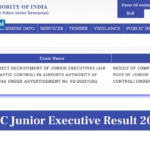In a development that has sparked widespread public debate and political scrutiny, the Karnataka government has reinstated IPS officer B Dayananda and three other senior officials who were previously suspended following the tragic stampede incident at the M Chinnaswamy Stadium in Bengaluru. The decision comes just months after the incident that left multiple people injured and exposed critical lapses in crowd control and event management at one of India’s most iconic cricket venues.
While the reinstatement has been welcomed by some as a sign of administrative fairness, others view it as premature and indicative of systemic issues in handling accountability within government ranks.
This blog delves into the background of the Chinnaswamy stampede, the suspension and subsequent reinstatement of key officials, and what this means for governance, public trust, and administrative ethics in Karnataka.
📍 Background: The Chinnaswamy Stadium Stampede Incident
On April 17, 2025, during the high-voltage IPL match between the Royal Challengers Bengaluru (RCB) and Chennai Super Kings (CSK), a massive stampede occurred at Gate 4 of M Chinnaswamy Stadium.
Key Highlights of the Incident:
- Thousands of fans had gathered for last-minute ticket sales and entry to the stadium.
- Poor crowd management and lack of barricading led to a chaotic rush, resulting in injuries to over 60 people.
- Emergency response was delayed, with eyewitnesses citing confusion among security personnel and inadequate medical aid.
- Videos of the panic went viral, raising questions about safety protocols, crowd control, and police preparedness.
Following an immediate probe, the state government took action to suspend four top officials, including:
- B Dayananda, Commissioner of Police, Bengaluru
- Dr. Sanjay Deshmukh, Additional Commissioner (East)
- Ravi Kumar, Joint Commissioner of Traffic
- Mahadev Naik, DCP (Law and Order)
⚖️ Suspension and Administrative Fallout
The suspensions were seen by many as a rare instance of swift administrative accountability. Public outrage over the incident—especially given the rising frequency of large-scale sporting events in Bengaluru—pressured the government to act decisively.
An independent committee was formed to investigate:
- Whether adequate security arrangements were in place
- Who was responsible for crowd planning
- Whether protocols issued by the Karnataka State Disaster Management Authority (KSDMA) were followed
Within weeks, the preliminary report concluded that there were “procedural lapses but no criminal negligence”, suggesting that the responsibility was more systemic than personal.
🔁 Reinstatement of B Dayananda and Others: What Changed?
In late July 2025, the Karnataka Home Department issued orders reinstating B Dayananda and the three suspended officers to their original or equivalent posts. The move was based on the findings of the inquiry panel, which cleared the officials of direct negligence and noted that crowd overflow was largely due to unregulated last-minute ticket distribution by the stadium management and inadequate coordination with private event organizers.
Key Points Behind Reinstatement:
- No willful negligence was attributed to the officers.
- Communication gaps were identified between law enforcement and stadium officials.
- Recommendations were made to revamp event protocols, not penalize individuals alone.
🗣️ Political and Public Reactions
The reinstatement has triggered mixed reactions from across the political spectrum and civil society.
👍 Supporters Say:
- The officers were scapegoated under public pressure.
- B Dayananda is a respected officer with a clean record.
- Long-term solutions require systemic changes, not temporary punishments.
👎 Critics Argue:
- The reinstatement sends a message that accountability is short-lived.
- Victims of the stampede have not yet received full compensation or justice.
- The inquiry may have lacked transparency or urgency.
Several political leaders, including members of the opposition BJP and independent MLAs, have called for making the inquiry report public and demanded a white paper on public event management policies.
🛑 What Went Wrong: Lessons from the Incident
The Chinnaswamy stampede wasn’t just a one-off tragedy—it exposed critical vulnerabilities in how mega-events are managed in urban India.
Major Lapses Noted:
- Overselling of tickets by private handlers
- Inadequate policing near entry gates
- Lack of queue systems or crowd segregation
- Minimal coordination between police, fire services, and stadium management
- No real-time crowd analytics or warning systems in place
Experts suggest that the situation could have been avoided with better use of technology, crowd modeling, and preventive planning.
📋 Reform Measures Proposed Post-Incident
Post-incident, the Karnataka government outlined several measures aimed at improving public safety during large events:
- Integrated Event Command Centers (IECC): To be set up near major stadiums to monitor crowd movement in real time.
- AI-Based Crowd Forecasting: Using historical data and ticket sales to estimate crowd surges.
- QR Code-Based Ticketing Systems: To reduce on-ground chaos from last-minute physical ticket sales.
- Mandatory Pre-Event Coordination Meetings: Between police, fire, medical, and event managers.
- Monthly Safety Audits: For all stadiums, including dry-runs and mock drills.
However, critics say these reforms remain largely on paper, and there is a need for immediate implementation to prevent future disasters.
👮 Who Is B Dayananda? A Brief Profile
B Dayananda, a 1994-batch IPS officer, is widely regarded as one of Karnataka’s most disciplined and transparent administrators. Prior to his role as Bengaluru Police Commissioner, he served in various crucial positions, including:
- Inspector General of Police, Intelligence
- Commissioner, Transport Department
- Joint Commissioner, Bengaluru Traffic
Known for his people-friendly approach and clean track record, Dayananda’s suspension had triggered concern among law enforcement circles who felt the system punished dedicated officers under public pressure.
His reinstatement is seen by supporters as a restoration of faith in objective justice, though others worry about the lack of long-term accountability mechanisms.
📝 Conclusion: A Wake-Up Call for Event Governance
The Chinnaswamy stampede will be remembered not just for its immediate tragedy, but for how it has shaped the discourse around urban event governance, police accountability, and public safety.
While the reinstatement of B Dayananda and his colleagues may be legally justified, it raises important questions:
- Is procedural accountability enough when public lives are at stake?
- Are systemic reforms being fast-tracked—or forgotten?
- Can public trust be rebuilt without transparency?
As Bengaluru prepares for future global events—from IPL matches to tech expos and music festivals—it is imperative that safety, not spectacle, becomes the priority.
The onus now lies on both government and civil society to ensure that “Never again” becomes more than just a promise.
❓FAQs
Q1: Why were the officers initially suspended after the Chinnaswamy incident?
They were held accountable for failures in crowd control, inadequate planning, and delayed emergency response.
Q2: On what basis were they reinstated?
A government-appointed inquiry panel cleared them of direct negligence, attributing the chaos to structural and logistical failures.
Q3: Has anyone been held criminally liable for the stampede?
No. While administrative action was taken, no criminal proceedings have been initiated as of now.
Q4: What reforms have been proposed after the incident?
The government has proposed better coordination, real-time monitoring, digital ticketing, and stricter safety audits for large events.
Q5: How can such incidents be prevented in the future?
By ensuring accountability, leveraging technology for crowd control, and prioritizing safety protocols over profits.










